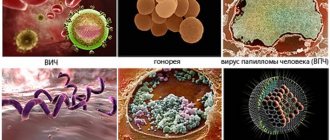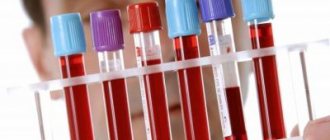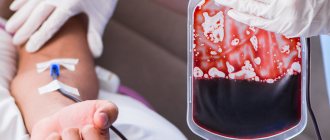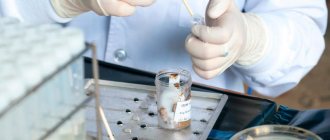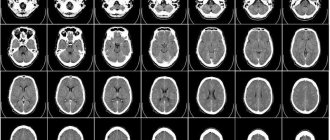Blood is a liquid connective tissue that performs important functions in our body. Its main purpose is to transport various chemical elements (oxygen, nutrients, metabolic products, etc.) in the human body; in addition, it provides a protective function: the implementation of immune reactions against external agents.
Blood consists of a liquid intercellular substance - plasma and formed elements suspended in it - leukocytes, erythrocytes, platelets. In case of wounds, cuts and abrasions, it is the first to defend our body: in the place where the skin is broken, a blood clot is formed (coagulation process), which prevents large blood loss and the penetration of pathogenic bacteria into the human body. The human body contains about 4-5 liters of blood.
The composition of the blood, like a litmus test, reacts to the slightest disturbances in the functioning of the human body, therefore, in order to make a diagnosis and make a correct diagnosis, it is necessary to take a blood test. There are two ways to collect blood: capillary (from the pad of the ring finger) and venous (from a vein). It is preferable to take blood from a vein, since such an analysis is more accurate - when taking biomaterial from a finger, the collection procedure itself introduces a greater likelihood of distorting the results. The use of capillary blood for analysis in humans is possible in cases where collection from a vein is difficult:
- High degree of damage to the skin by burns;
- The patient has too small veins;
- In newborns and young children;
- If a person is obese;
- If the patient has a predisposition to venous thrombosis.
The procedure for taking a blood test is unpleasant for many people, so in order not to go through it several times, you need to know how long the test is valid.
How long are the results stored in the clinic?
The results of research in medicine, the so-called tests, are not just pieces of paper ; the exact definition of this term is given in Art. 1 of Law No. 77-FZ of December 24, 1994 “On the Mandatory Deposit of Documents.”
Analysis is an information carrier in the form of a sheet of paper, photograph, radiograph, scan, etc. material on which information about a particular study and its result is recorded.
Such documents have legal significance in resolving disputes between a patient and a doctor or medical institution, as they prove the conduct of research on the basis of which the diagnosis was established and treatment prescribed.
The analyzes are pasted into the patient’s medical record , and papers of this kind, namely medical records, must be stored for 5 years (List of standard documents dated 08/15/1988), in case of a lawsuit and to illustrate the dynamics of the outpatient’s condition.
Unclaimed tests (those that the patient did not come for if they were handed out or those that were left unattached to the cards) longer than 1 month. They are not kept in the clinic: they are thrown away as irrelevant.
Expiration dates of tests
Different tests have different shelf life .
How long is a medical certificate for a driver's license valid? Find out the answer right now.
Blood is taken to clarify the patient’s condition and to make a diagnosis. Sometimes, when being admitted to a hospital, the patient is given a list of mandatory tests that he must undergo, otherwise he will not be allowed to receive inpatient treatment.
In this case, the tests take a long time to complete - there are too many of them, they are all different, and the memo given to a chronic patient indicates the maximum periods for the usefulness of the results, which significantly exceed the periods that are important in treatment.
Medical tests are the initial information for a doctor, the entire value of which lies in its relevance.
The expiration dates for blood tests are:
- general – 10 – 14 days;
- biochemical blood test – up to 2 weeks;
- HIV – up to six months;
- hepatitis – up to 3 months;
- syphilis (rw) – from 20 days to 3 months;
- coagulogram – up to 2 weeks;
- for sugar – from 24 hours to 2 weeks;
- Allergy tests – up to 1 month.
In cases of clarification of the presence of syphilis or HIV in the body, the period of validity of test results, measured in months, is explained by the long period from the moment of infection to the time of appearance of changes in the blood, that is, antibodies.
If blood is taken a month from the date of infection, then it is unlikely that deviations from standard indicators will be detected.
A stool test is most often performed to detect parasite infestation . Testing for worm eggs is valid for 10 days and no more.
A scraping (LHC) is taken as a control test for diagnosis to verify the presence or absence of infection.
The contents from the stick with which the epithelium was scraped are examined under a microscope.
The expiration dates are as follows:
- for enterobiasis – up to 10 days;
- for diphtheria – no more than 10 days;
- tank. analysis – up to 14 days;
- for the intestinal group (ovuleworm) – no more than 14 days.
The relevance of these studies is short due to the fact that one can become infected with diseases, the causative agents of which they are trying to detect, very quickly, and there is immediately a possibility of identifying the presence of microorganisms or traces of the vital activity of parasites.
Where to complain about unscrupulous doctors? Read about it here.
Hormones and spermogram
Such analyzes are valid for 6 months .
The spermogram is valid for 3-6 months, and no more. may well change over the course of several months both in one direction and the other.
For example, before the IVF procedure, it is important to have a fresh spermogram.
How long will they be valid?
It turned out that for different purposes the requirements for the relevance of analyzes differ and amount to the following periods:
- For IVF under compulsory medical insurance – from 14 days to 6 months.
- For kindergarten – no more than 2 weeks.
- Before surgery (gynecology and others) – from 14 days to 6 months.
- For hospitalization - up to 14 days, except for blood tests for syphilis (sv), HIV, which are valid for 6 months.
- For a swimming pool – 3 months.
- For a health resort card – up to 10 days.
- For a pregnant woman - 10 days, except for blood biochemistry for syphilis, HIV, which have a validity period of 6 months.
When planning to be hospitalized or go to a sanatorium, you should correctly prioritize and leave those studies whose validity period is short for the last week , and first do research that has a long validity period.
The main thing is that the results are in time for the final visit to the doctor, who completes the paperwork.
How to store urine and feces?
Urine and feces are biological environments in which there is a mass of bacteria that, at room temperature, can rapidly multiply, and some will die and not be recognized.
Therefore, it is not worth keeping the waste products of your body (or your child) prepared for analysis for a long time. In addition, material such as urine contains salts - phosphates, chlorides, sulfates, which are chemically unstable.
After a few hours, these salts will disintegrate into the simplest compounds, and the meaning of the analysis is nullified: the urine will not reflect the true condition of the patient .
But sometimes it is necessary to collect the urine of a sick old person or child (for kindergarten) in advance in order to send it to the laboratory in the morning.
In this case, it is important to know that the urine of neither an adult nor a baby cannot be stored at room temperature, since it will take more time for delivery, after which the material may lose its properties.
In the refrigerator, you can slightly extend the shelf life of urine for analysis, but no more than 2-3 hours , and then at a temperature not lower than +3 - +4°C, otherwise the precipitated salts and the changed composition of the urine being tested can be interpreted as signs of severe damage to the kidneys and genitourinary system.
Feces can be kept at room temperature for no more than half an hour. If it is not possible to collect material for research immediately before submitting it to the laboratory, then you can store the contents of the intestines of a child or adult for 4-6 hours at a temperature of +4ºC to +8ºC in the refrigerator.
The most reliable tests are those performed within 2 hours from the moment of defecation .
When collecting any tests prescribed by a doctor, it is important to remember that their results are needed only up-to-date, that is, those that are still fresh and reflect the presence or absence of signs of the disease.
First of all, the patient himself is interested in fresh, high-quality research results, so it is worth trying to ensure that the doctor receives the most valid data.
Read about the expiration dates of Unified State Exam results in our article.
How long and how to store stool and urine samples in the refrigerator ? Find out about it in the video:
Content
Medical workers say that today there is no more informative study in the first stages of diagnosis than blood tests. Correctly performed studies will help the doctor decide on further tactics, prescribe additional diagnostics or choose a treatment regimen. How long does a blood test take? What research data processing techniques are used?
A correctly done blood test is a qualitative and quantitative indicator of its components. Such data allows the doctor to determine the type of disease and begin to act.
collection of biomaterials for laboratory diagnostics in St. Petersburg
Laboratory diagnostics (tests) are of great importance for diagnosing many diseases and monitoring the effectiveness of treatment. Depending on the problem, this could be a blood test, a urine test, or other types of tests. During illness, it is especially difficult to leave the house and waste time and energy on the road. The risk of complications due to contact with infections in medical institutions increases. You can get tested without leaving your home. Our center offers a service such as collection of biomaterials for testing at home. By calling the coordination center, you can call a nurse at a time convenient for you. Almost all types of tests can be done without coming to the clinic: clinical blood tests, urine tests, biochemical, hormonal, immunological and other studies.
Calling a nurse to collect biomaterial for testing at home saves you time and allows you not to go outside during periods of poor health. It is especially relevant during epidemics of influenza and ARVI, for elderly and weakened patients. It can also be very useful for pregnant women; during this period they have to undergo a lot of tests, and their health in the morning is often not ideal.
The Medical Center employs qualified nurses with extensive experience, uses modern equipment, and all instruments for taking samples are disposable, which makes the procedure completely safe. The material is delivered to the laboratory within a short time, established by medical standards, so there is no difference in the accuracy of the results of tests taken at home or in a medical center.
Sample collection is carried out in all districts of St. Petersburg, in the suburbs and the Leningrad region. Since June 1, 2013, distance coefficients have been reduced in many localities. Test results can be obtained by e-mail, from your attending physician, or from the outpatient departments of our center.
How long does laboratory testing of material take?
The turnaround time for blood tests is determined depending on the type of diagnosis and the medications used by the laboratory technician. What type of analysis is done within a couple of hours?
The information obtained during the study allows the doctor to see the amount of all blood components. The laboratory assistant must calculate the leukocyte formula and indicate how quickly erythrocyte sedimentation occurs.
A general blood test is recommended as a diagnosis during a preventive examination, suspected infectious or inflammatory diseases, during therapeutic treatment.
The procedure is quite simple; you need to go to a laboratory or diagnostic center, and a laboratory technician will take blood from your finger. The results will be ready within 1 hour.
- Determination of blood group.
This type of blood diagnostic is prepared very quickly, in the presence of the patient. This procedure can occur during a woman’s pregnancy registration, before surgery. Blood for research is taken from a vein, always on an empty stomach.
Modern medicine offers diagnostics not only in laboratory conditions. You can also use rapid tests at home to examine and interpret blood tests. How long will such a diagnosis take and will it be accurate? To perform the procedure, you will need a rapid test and blood from your finger. Reliable results will be known after 10-15 minutes.
- Definition of syphilis and AIDS.
In one day, you can conduct a study for the presence of syphilis and AIDS in the human body. It is also recommended to use a rapid test, the results of which will be known within 10-20 minutes. If the result is questionable, the doctor may recommend laboratory testing.
Ready times for tests taken in the evening (after the main time for taking tests):
- for analyzes with a same-day turnaround time, the results will be ready by 3:00 p.m. the next day;
- for analyzes with a long turnaround time (more than 1 day), the period is increased by 1 day.
The turnaround time for some tests may vary. Up-to-date information can be obtained by phone.
We ask that you bring biomaterials for analysis in sterile containers
. In outpatient departments, when registering for tests, these containers are issued by administrators. If you make an appointment by phone, you need to buy them at the pharmacy. This is especially important for analyzes in which biomaterial is inoculated (feces, urine, breast milk, ejaculate, saliva, etc.). The laboratory will not be able to accept material that is not brought in a special container, since the sterility of the container is necessary to obtain a reliable result.
Dear patients, please note!
Instructions for collecting hair to study microelement composition
Blood tests that take several days to complete
There are a number of tests that require careful preparation and several days of research.
Such diagnostics include:
- blood for sugar;
- blood for AIDS, syphilis;
- immunoenzyme and serological;
- hormonal diagnostics;
- for oncological diseases;
- biochemical research.
How many days does each of the listed tests take? It all depends on the research methods and chemical components that are used. For example, 1-2 days are enough to determine the amount of sugar; 2 to 10 days are needed to identify immunodeficiency. Determination of hormonal levels can take from 4 to 30 days.
Very often, patients ask the question: how long will it take for the diagnostic results for tumor markers to be ready? Such a study is done if the patient shows clear signs of developing cancer.
The result of the study is prepared in 1 to 10 days, it all depends on the location of the tumor and its degree of development. The tumor marker analysis allows the doctor to see obvious signs of the presence of the disease and prescribe additional diagnostics to determine treatment tactics.
How many days does a biochemical blood test take? It all depends on the result that the doctor needs; according to statistics, the time varies from 3 to 20 days. Using this procedure, the functioning of organs responsible for hormonal and immunological background can be determined.
How long does a PCR test for coronavirus last?
In most cases, the validity period is determined by the requesting party and is 72 hours. However, different standards are established for individual cases. For example, for vacationers in sanatoriums, Rospotrebnadzor has established a validity period of 48 hours. Sometimes a document is considered valid for 7 days.
When traveling abroad, the validity of the PCR test for coronavirus is as long as required by the country you are traveling to. In most cases, this period is from 2 to 4 days.
The validity period begins to count from the moment the biological material is collected.
Recommendations for taking a blood test
Doctors say that with the help of any type of blood test, you can accurately determine the general condition of the body and see the development of a serious disease at the stage of its inception. In order to get reliable results, you need to properly prepare for the procedure.
- You need to stop taking any medications for a week. If this is not possible, the attending physician must know what medications are being taken, in what dose and for how long.
- The day before the test, you should avoid fatty, fried or smoked foods.
- You should not drink coffee or strong tea for 24 hours.
- Any technique will be more accurate if performed on an empty stomach.
To obtain reliable results of biochemical analysis, you need to properly prepare for the procedure. You should not eat food 6-8 hours before the test. For those who smoke, it is also advisable to abstain from the addiction for 10 hours.
A couple of days before the test, you should refrain from:
A blood test is one of the most informative methods for determining the condition of the body. By undergoing annual preventive examinations, you can prevent the development of a serious disease and take all measures for early diagnosis and proper treatment.
What tests should I take before surgery? Let's find out in this article.
If a person is to be treated in a hospital, he will be asked to undergo a certain number of tests required during hospitalization and corresponding to the clinical protocols and the profile of the department in which he will be hospitalized. If a person needs surgical treatment, then the list of tests before surgery may be more extensive in order to understand whether surgical intervention is possible in the current state of the body, or whether it will require additional improvement with the help of procedures and medications. The shelf life of tests before surgery will be discussed at the end of the article.
Leukocyte formula – Differential
| relative neutrophil count | % | %NEUT | percent of neutrophils | % |
| relative lymphocyte count | % | %LYMP | percent of lymphocytes | % |
| relative monocyte count | % | %MONO | percent of monocytes | % |
| relative eosinophil count | % | %EOS | percent of eosinophils | % |
| relative number of basophils | % | %BASO | percent of basophils | % |
| relative number of large unstained (peroxide negative) cells | % | %LUC | percent of large unstained cells | % |
Blood tests before surgery and for hospitalization
Almost always, before referral for hospital treatment and before surgery, blood tests are prescribed. There are a number of reasons for this, such as determining the degree of dysfunction of a particular organ, examining the general state of health, or detecting the presence of infections.
The following blood tests can be considered the most frequently included in the list of preoperative or pre-hospitalization examinations: biochemical analysis, general analysis, determination of the Rh factor and blood group, tests for hepatitis C and B, syphilis, HIV.
If the patient has any disease or a certain condition of the body, which is consistent with the history, tests and tests can prompt the doctor about the need to adjust the treatment plan.
Complete blood count (5-diff)
General blood test 5 diff
is a study of the qualitative and quantitative composition of blood elements. The material for the study is venous blood.
General blood test 5 diff includes:
- determination of the size, number, shape of red blood cells and the hemoglobin content in them;
- determination of the ratio of plasma volume to blood cells;
- determination of the total number of leukocytes;
- calculation of the percentage of different leukocytes: neutrophils, lymphocytes, monocytes, eosinophils and basophils on an automatic analyzer;
- counting the number and estimating the average size of platelets.
A clinical blood test is performed as the first screening test when complaining of “disease.” The analysis gives an idea of possible areas where pathological changes occur and helps the clinician determine further examination tactics. Indications:
- screening examinations as part of preventive and dispensary observation;
- basic examinations during hospitalization in therapeutic and surgical hospitals;
- diagnosis of anemia;
- diagnosis of inflammatory and infectious diseases;
- diagnosis of blood system diseases;
- monitoring of therapy and the course of various diseases.
Preparation
No special preparation is required. It is recommended to take blood no earlier than 4 hours after the last meal (for children - before the next feeding). If possible, avoid high emotional and physical stress the day before.
Interpretation of results
When interpreting the analysis, it should be taken into account that in 5% of healthy people, blood test results deviate from the accepted reference values. Blood counts depend on race, gender, and age.
The most important indicators in a general blood test are:
- Hb
(hemoglobin) - hemoglobin; - Ht
—hematocrit; - total number of red blood cells in
; - MCV
*—average erythrocyte volume; - RDW
*—distribution of erythrocytes by volume; - MCH
* - average hemoglobin content in 1 red blood cell; - MCHC
*—average hemoglobin concentration in erythrocytes; - total platelet count;
- total white blood cell count
; - leukocyte formula.
*It should be taken into account that the value is not specific; the indicator should be used to diagnose anemia only in combination with other indicators of a general blood test and biochemical blood test.
Determining the parameters of a clinical blood test makes it possible to diagnose conditions such as anemia/polycythemia, thrombocytopenia/thrombocytosis and leukopenia/leukocytosis, which can either be symptoms of a disease or act as independent pathologies.
Hemoglobin (Hb, hemoglobin)
Red blood cell protein containing heme. The main function is oxygen transfer. Units of measurement: g/l.
Increased hemoglobin levels:
- dehydration: with severe diarrhea, vomiting, increased sweating, diabetes, burn disease, peritonitis;
- physiological erythrocytosis: in residents of high mountains, pilots, athletes;
- symptomatic erythrocytosis: with insufficiency of the respiratory and cardiovascular systems, polycystic kidney disease; erythremia.
Decreased hemoglobin:
- anemia of various etiologies;
- overhydration.
Hematocrit (Ht, hematocrit)
An indicator of the proportion of cells in the majority of red blood cells to the liquid part of the blood. Units: %
Increased hematocrit:
- dehydration: with severe diarrhea, vomiting, increased sweating, diabetes, burn disease, peritonitis;
- physiological erythrocytosis: in residents of high mountains, pilots, athletes;
- symptomatic erythrocytosis: with insufficiency of the respiratory and cardiovascular systems, polycystic kidney disease;
- erythremia.
Decreased hematocrit:
- anemia of various etiologies;
- overhydration.
Red blood cells
Units of measurement: million/µl (106/µl). Alternative units: 1012 cells/L. Conversion factors: 1012 cells/l = 106 cells/μl = million/μl.
Increased red blood cell concentration:
- dehydration: with severe diarrhea, vomiting, increased sweating, diabetes, burn disease, peritonitis;
- physiological erythrocytosis: in residents of high mountains, pilots, athletes;
- symptomatic erythrocytosis: with insufficiency of the respiratory and cardiovascular systems, polycystic kidney disease;
- erythremia.
Decreased red blood cell concentration:
- anemia of various etiologies;
- overhydration.
MCV (mean erythrocyte volume)
A calculated indicator that is calculated based on a histogram of the distribution of erythrocyte size. According to MCV, microcytic, normocytic and macrocytic anemias are distinguished. An increase in the indicator indicates the presence of large red blood cells in the blood, a decrease - small ones.
Units: fl (femtoliter).
Increasing MCV values:
- B12 deficiency and folate deficiency anemia;
- aplastic anemia;
- liver diseases;
- hypothyroidism;
- autoimmune anemia;
- smoking and drinking alcohol.
Reduced MCV values:
- Iron-deficiency anemia;
- anemia of chronic diseases;
- thalassemia;
- some types of hemoglobinopathies.
RDW (Red cell Distribution Width, distribution of red blood cells by size)
Estimated value, which is calculated based on the histogram of distribution of red blood cells by volume. Reflects the heterogeneity of red blood cell sizes. An increase in the indicator indicates that the blood sample contains small and large red blood cells. A decreasing value indicates the homogeneity of red blood cells in the sample.
Units: %
Increasing RDW values:
- anemia with heterogeneity of red blood cell size, including those associated with nutrition; myelodysplastic, megaloblastic and sideroblastic types; anemia accompanying myelophthisis; homozygous thalassemia and some homozygous hemoglobinopathies;
- a significant increase in the number of reticulocytes;
- condition after red blood cell transfusion;
- interference - cold agglutinins, leukemia, hyperglycemia.
MCH (Average hemoglobin content in an erythrocyte)
A calculated indicator that characterizes the average mass of hemoglobin in an erythrocyte. An increase in the indicator is associated with a supersaturation of red blood cells with hemoglobin, a decrease indicates a hemoglobin deficiency.
Units: pg (picogram).
Increasing MCH values:
- B12 deficiency and folate deficiency anemia;
- aplastic anemia;
- liver diseases;
- hypothyroidism;
- autoimmune anemia;
- smoking and drinking alcohol.
MCH Downgrade:
- Iron-deficiency anemia;
- anemia of chronic diseases;
- some types of hemoglobinopathies.
MCHC (average hemoglobin concentration in erythrocytes)
A calculated indicator that characterizes the average mass of hemoglobin contained in a unit volume of an erythrocyte.
Units of measurement: g/dl. Alternative units: g/l. Conversion factor: g/l x 0.1 ==> g/dl.
Increasing MCHC values:
- hereditary microspherocytic anemia.
Decrease in MCHC values:
- Iron-deficiency anemia;
- anemia of chronic diseases;
- some types of hemoglobinopathies.
It should be taken into account that the MCHC value is not specific; the indicator should be used to diagnose anemia only in combination with other indicators of a general blood test and biochemical blood test.
Platelets
Units: thousand/µl (103 cells/µl). Alternate units: 109 cells/L. Conversion factors: 109 cells/l = 103 cells/µl = thousand/µl.
Increased platelet concentration:
- physical stress;
- inflammatory diseases, acute and chronic;
- hemolytic anemia;
- anemia due to acute or chronic blood loss;
- conditions after surgical interventions;
- condition after splenectomy;
- oncological diseases and hemoblastoses.
Decreased platelet concentration:
- pregnancy;
- B12 deficiency and folate deficiency anemia;
- aplastic anemia;
- viral and bacterial infections;
- taking medications that inhibit platelet production;
- congenital thrombocytopenia;
- splenomegaly;
- autoimmune diseases;
- conditions after massive blood transfusions.
Leukocytes
Cells with nuclei that perform protective functions. They are formed in the red bone marrow and organs of the lymphatic system. There are 5 populations: neutrophils, lymphocytes, monocytes, eosinophils or basophils. Functions and lifespan depend on which population the leukocyte belongs to.
Units: thousand/µl (103 cells/µl). Alternate units: 109 cells/L. Conversion factors: 109 cells/l = 103 cells/µl = thousand/µl.
Increased leukocyte concentration:
- physiological leukocytosis: emotional and physical stress, exposure to sunlight, cold, food intake, pregnancy, menstruation;
- inflammatory processes;
- viral and bacterial infections;
- conditions after undergoing surgical interventions;
- intoxication;
- burns and injuries;
- heart attacks of internal organs;
- malignant neoplasms;
- hemoblastoses.
Decreased leukocyte concentration:
- viral and some chronic infections;
- taking medications: antibiotics, cytostatics, non-steroidal anti-inflammatory drugs, thyreostatics, etc.;
- autoimmune diseases;
- exposure to ionizing radiation;
- wasting and cachexia;
- anemia;
- splenomegaly;
- hemoblastoses.
Leukocyte formula
Leukocyte formula is the percentage of different types of leukocytes in peripheral blood and the calculation of their number per unit volume. If atypical forms of cells are present, the blood is examined under a microscope. The leukocyte population is divided into 5 types: neutrophils, lymphocytes, monocytes, eosinophils, basophils. Cells differ in appearance and functions.
Leukocyte formula is considered by the Sysmex XS1000i automatic hematology analyzer.
What studies are carried out for various pathologies?
If the patient has health problems that affect blood clotting, a coagulogram may be required. This blood test is done if:
- the patient is taking blood thinning medications,
- he bruises easily,
- there have been any problems during previous operations and dental procedures with bleeding in the patient or his close relatives.
If a patient has diabetes mellitus or is predisposed to developing this disease, he will need to undergo tests to diagnose diabetes mellitus.
If the patient is a woman of childbearing age, she may need to take a pregnancy test. This includes a blood test showing the level of hCG hormone, that is, human chorionic gonadotropin. The expiration date of tests before surgery must be observed.
Other tests and examinations
The most common test performed in the laboratory is a general urinalysis. In case of kidney disease, the doctor may recommend doing an additional test (urine analysis according to Nechiporenko or sterility test).
Before entering a hospital for treatment, a woman may need to consult a gynecologist and undergo tests for sexually transmitted infections, smears for microflora from the urethra and genital tract. In this case, the expiration date of the tests before the operation must be taken into account.
More specific and serious tests may be required before surgery on the lungs, heart, organ transplant, etc.
A specialist can assess the condition before and after surgery, as well as the effect after treatment, based on the results of laboratory tests. If not all the results from the list of tests are acceptable for surgery, the patient may require additional treatment, postponement of surgery, or more detailed examination. Based on the results of the tests, the attending physician can change the chosen method of pain relief, the amount of surgical treatment or its timing.
In addition to tests, it may be necessary to undergo instrumental studies or examinations by other specialists. Most often this is ultrasound, ECG, fluorography, consultation with an otolaryngologist, ophthalmologist, therapist, dentist or doctors who are monitoring any concomitant disease of the patient (neurologist, endocrinologist, cardiologist, etc.).
So what is the shelf life of tests before surgery? This question interests many.
Analysis for syphilis (Wassermann reaction)
Syphilis is a common sexually transmitted disease that is sexually transmitted through unprotected sex. There is a possibility of contracting this disease through blood, for example, by sharing personal hygiene products - razors, syringes, toothbrushes, etc. To accurately determine the presence of this infection in the blood, the so-called “Wassermann reaction” (RW) is prescribed. The first signs of this disease: enlarged lymph nodes in the groin area, ulcers on the genitals (chancre). The disease may be accompanied by hoarseness of the voice and decreased vision in the patient.
Typically, a test for syphilis is prescribed in the following cases:
- During pregnancy;
- During annual scheduled examinations;
- Before operations;
- After unprotected sexual intercourse;
- Before donating blood from a donor;
- When external signs appear.
The shelf life of syphilis test results ranges from one month to three.
What blood tests are performed immediately before surgery?
Blood tests are usually required right before surgery for several reasons.
Determination of Rh factor and blood group. Any operation involves blood loss. And if complications arise during the operation, the blood loss may be too great, leading to the need for a transfusion of red blood cells or plasma. In this case, it is important to know what the patient’s blood type and Rh factor are, so as not to make a mistake when performing a transfusion. The group is determined by the doctor using a small volume of blood and special equipment. whey
A blood sugar test is performed to monitor glucose levels, especially when the patient has diabetes or a predisposition to this disease.
In what cases is it not necessary to take tests before surgery?
If the operation has minimal risk, then the list of tests may be very short, or they may not be required at all, depending on the recommendations of the attending physician. The list of studies may be short for low-risk operations, such as breast biopsy or operations on small areas of skin (removing a lipoma, papilloma, etc.), etc. With such manipulations there is a very low risk of complications if the patient is in good health (no problems with blood clotting, etc.).
Therefore, you should consult a specialist about the need to undergo certain tests before hospitalization or surgery.
When is it necessary to take a PCR test?
PCR testing (also known as polymerase chain reaction testing) is a type of laboratory test that tells whether someone currently has COVID-19. This type of diagnosis detects the presence of a virus in the body. PCR does not determine the time of infection, infectious load and stage of the disease.
PCR test for COVID-19 from day 1
from 1550 ₽
Sign up
Antibodies IgM and IgG to coronavirus COVID-19 total from day 1
from 900 ₽
Sign up
IgM antibodies to coronavirus from day 1
from 650 ₽
Sign up
It is necessary to take a test to determine a new coronavirus infection in the following situations:
- Upon contact with a person who has previously been diagnosed with coronavirus.
- Have recently traveled to a country or region where the number of cases of the disease is at critical levels.
- Employees who, due to their profession, are forced to communicate with quarantine regions must undergo mandatory testing. For example, for food delivery, supplying pharmacies with medicines, maintaining utility networks, and communicating with retail outlets.
- If you have respiratory symptoms. It is especially important to consult a doctor if your body temperature is elevated to 38 degrees.
Among the most common complications of the disease, it is necessary to highlight viral pneumonia, acute respiratory distress syndrome followed by acute respiratory failure. If you notice the following symptoms, it is recommended to get tested for COVID-19:
- The main symptom is any (even subfebrile - 37-37.5 ° C) increase in body temperature.
- The cough is dry or with little sputum.
- Weakness.
- Loss of smell and/or taste.
- Nasal congestion or mild rhinorrhea.
- Conjunctivitis.
- A sore throat.
- Headache, dizziness.
- Muscle pain.
- Headache.
- Pain in joints and muscles.
- Severe intoxication of the body.
- Diarrhea, nausea, vomiting.
- Chills.
- Hemoptysis.
- Loss of appetite.
- Chest congestion, feeling of lack of air, shortness of breath.
- Blood oxygen saturation according to pulse oximetry (SpO2) ≤ 95%.
Certain population groups should be tested for COVID-19:
- Hospitalized patients diagnosed with community-acquired pneumonia. Employees of medical organizations, educational institutions, etc.
- Social workers and nursing home staff.
- Health care workers, even in the absence of symptoms.
How are deadlines regulated?
How are the expiration dates of tests before surgery regulated? The order of the Ministry of Health does not stipulate any exact periods of validity of laboratory tests. But there are generally accepted requirements that should be followed.
The dynamism of changes in the body's condition obliges all research results to be carried out shortly before surgery or hospitalization. After some time, the results of many tests do not have full diagnostic value and are only suitable for assessing the patient’s health over time and comparing the result obtained after treatment with the initial data. The minimum validity period for tests for preparation before surgery or hospitalization is 1-2 weeks, depending on the type of test and the time required to complete it. The doctor will give the patient all the necessary explanations about the deadlines given for completing all examinations and tests.
What is needed to obtain a medical record?
When applying for a medical record, you must provide:
- Original passport;
- 1 photograph measuring 3x4 cm;
- SNILS;
- Fluorography result (valid for 1 year from the date of receipt of the test result);
- Conclusion of the medical commission on the state of health.
If you have the following documents, they must also be provided to obtain a health certificate:
- Vaccination card;
- Outpatient medical card;
- Employer's statement;
- Previous medical record.
The medical record also contains information about vaccinations received during life. In some cases, additional vaccination may be required if the specifics of the field of activity require it.
Standard analysis times
Here is the expiration date for blood tests before surgery. The relevance of a clinical blood test is 10 days. Biochemical blood test: glucose, urea, creatinine, total bilirubin, indirect bilirubin, total protein, ALT, AST - 10 days. Coagulograms: INR, APTT, fibrinogen, fibrin time - 10 days. Blood groups, Rh factor - indefinitely. RW (syphilis), HCV (hepatitis C), HBs (hepatitis B) - valid for 3 months. The shelf life of the HIV test before surgery is also 3 months.
And here are other deadlines. General urinalysis – a month. ECG (electrocardiography) – month. Fluorography or radiography of the lungs – one year. Blood tumor markers: CA 125, CA 19.9. - 3 months.
The shelf life of tests before gynecology surgery is standard. The relevance of a smear for flora and oncocytology of the cervix is 3 months.
For many years, blood tests have been the most common method of medical examination to detect some symptoms of diseases. At its core, blood is a special liquid tissue of the body and includes red blood cells, platelets, leukocytes and plasma. Blood carries nutrients and oxygen to all organs and tissues of the body, maintains body temperature, has a protective function, and provides immunity to various diseases.
Diagnosis of diseases using laboratory blood tests
Thanks to its unique properties, blood allows one to diagnose the functioning of almost all organs and systems of the body, and during a woman’s pregnancy it also provides information about the state of the fetus’s body. Blood tests, the timing of which are within normal limits, make it possible to determine abnormalities, changes in the composition of the blood and diagnose diseases in the early stages, and monitor the course of the disease.
Blood sampling for testing is usually done from a finger or a vein. No special preparation is required to donate blood during the test, but a common condition is to draw blood early in the morning on an empty stomach. In all medical institutions, blood sampling from a finger or from a vein for analysis is carried out by qualified specialists. Some experts recommend taking blood for analysis only from a vein, as they consider this method to be more reliable and accurate for a number of reasons.
Blood tests, the timing of which influence the reliability of information about the condition and functioning of organs and tissues of the body, allow doctors to diagnose diseases. If blood tests are not carried out on time, the information becomes partially distorted over time, which can lead to an incorrect diagnosis.

